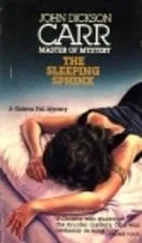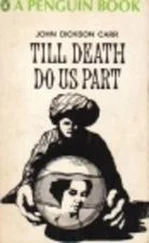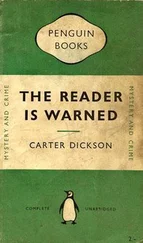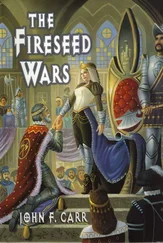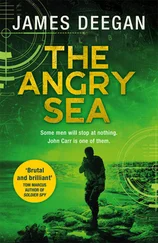4.55 p.m.-5.so p.m. From the Summing-up, by Mr Justice Rankin
"... and as you know, members of the jury, we have here a case of circumstantial evidence. Now the real test of the value of circumstantial evidence is this: does it exclude every reasonable possibility? I can even put it higher: does it exclude all other theories or possibilities? If you cannot put the evidence against the accused man beyond a probability and nothing more, then it is impossible for you to say you are satisfied beyond reasonable doubt that the charge is established. There is no muddledom about that; the law there is as plain as a pikestaff. A man cannot be convicted of any crime, least of all murder, merely on probabilities: unless they are so strong as to amount to a reasonable certainty. If you have other possibilities, you cannot come to the decision that the charge is made out. The question is not: who did this crime? The question is did the prisoner do it? You have heard at some length the evidence in this case, you have heard the speeches of counsel, and it is now my task to make some survey of the evidence. You will remember that you are the judges of the facts; I am not the judge of the facts at all; and you must bear this in mind if I seem to omit or overstress any matter contrary to your view.
'Let us take what may be called the relevant facts from the beginning. Much has been said at the beginning concerning the demeanour of the accused man. As you know, testimony about the look of a man - whether he seemed happy, whether he seemed agitated - is permitted here. You must therefore give it due consideration. But I must tell you that I think it unwise to put too high a value on such statements. You have probably found that it is not always reliable in the affairs of ordinary life. In judging the demeanour of a person, you must suppose that his reactions to a given happening - tragic, peculiar, or even commonplace - will invariably be the same as your own; and I do not need to tell you of the dangers attending that. Taking the facts that have been outlined to you, then ...
'...I think, therefore, that this case boils down, not to a question of fact alone but to the interpretation of fact. An arithmetic-book cannot consist of all answers and no sums. A case of this sort cannot consist of all effects and no causes: it is the causes that are under debate. The two original matters you must decide are: first, had Avory Hume formed any plot to drug Captain Answell, arrange the false trappings to suggest a felonious attack on him by Captain Answell, and put Captain Answell under detention as a madman? Second, was the prisoner mistaken for Captain Answell?
‘I have just indicated to you my reasons for thinking that there is good evidence in favour of both these things. You have heard Dr Peter Quigley, an agent of the International Medical Council, as to words he states he heard the deceased speak. The deceased is quoted as saying that he meant to get possession of Captain Answell's pistol: that he meant to invite Captain Answell to his home: that he meant to administer brudine in a drink of whisky and soda: that he meant to get rid of such evidence afterwards: that he meant to create the signs of an apparent struggle: that he meant Captain Answell's finger-prints to be found on an arrow, and the pistol to be found in Captain Answell's pocket. I have quoted to you supplementary evidence which seems to me to make this a reasonable possibility. Do you believe that this happened? If you do not, you will decide accordingly: it is a matter entirely for you. But if you do believe it, you will only be led into a muddle by any talk of "facts".
'Did the deceased mean that a pistol should be found in the pocket of the man he was entertaining? If he did, I think we cannot hold against the prisoner the "fact" that it was actually found there. If he meant to administer drugged whisky, getting rid of the evidence later, and if he succeeded in doing this, I' think we cannot hold it against the prisoner that the plan actually succeeded. If he meant finger-prints to be found on the arrow - and if you believe he succeeded in planting them there - then finger-prints are only what we should expect to find. If (to give you an example) A is accused of stealing B's wallet, and the wallet is found in A's pocket, the fact itself would not weigh with you if you were convinced that C put it there.
'In this reading of the evidence, I confess I can see no motive for murder on the part of the prisoner. Indeed, none is suggested except the fact of Mr Hume's antagonism towards him; and, if you believe this reading, the antagonism did not exist. Without motive or weapon, the prisoner arrives at the house. You have heard evidence which has been construed as the sign of a quarrel in the study, and which you must consider carefully. But if every matter relied on as circumstantial is equally consistent both with the guilt and the innocence of the prisoner, the multiplication of those instances may not take you any further in coming to a conclusion of guilt
'Taking first the testimony of the individual witnesses ...
'... Finally, members of the jury, there is the question whose determining must be the crux of your decision: was the deceased man killed by an arrow held in the hand of the prisoner?
'If the prisoner took the arrow and wilfully stabbed the deceased man with it, he is guilty of murder. On the one hand, you have his finger-prints on the arrow, and the circumstance that door and windows were bolted on the inside. On the other hand, you have the indications with which I have already dealt, and you have an alternative explanation with whose evidence I can deal now. We have heard that, when the prisoner was left alone in the study with Mr Hume, the guide-feather on the shaft of the arrow was intact. You have heard that, when a search of the room was made immediately after the discovery of the crime, a piece of feather some inch and a quarter long by an inch square was missing. Neither Mr Fleming nor Dyer found it. It was not found by Inspector Mottram. The suggestion made by the prosecution is that it had lodged in the prisoner's clothing.
'The question now before us is not so much: what happened to the missing piece of feather? The question before us may be put more accurately: do the two pieces of feather produced by the defence-one from a cross-bow, the other from an opening supporting the spindle in the door - constitute what we want? Do they belong to the feather on the arrow used to commit this crime? Are they one feather? If you decide that they are not - or, more properly, that neither of the two pieces belongs to the original - then they do not concern us. The circumstances in which they were found are curious, no doubt; but that is none of our business. On the other hand, if you are satisfied that either or both of them belonged to the original feather, it is difficult not to think that this in itself constitutes a reasonable doubt of the case for the prosecution.
'I confess I do not altogether understand the suggestion, of the prosecution here. In my notes I find the suggestion that the first piece of feather, that in the cross-bow, was not a part of the original one; but I have had no further illumination as regards this. Let us take the evidence as it has been presented, and see whether it may not lead irresistibly to the conclusion that -'
5.8Op-m.-5.s6
p.m.
From the Record of the Shorthand Writer, by Mr John Keyes
The jury, after six minutes' retirement, returned into court.
The Clerk of Arraigns: Members of the jury, are you agreed upon your verdict?
The Foreman of the Jury: We are.
The Clerk of Arraigns: Do you find the prisoner guilty, or not guilty of murder?
The Foreman of the Jury: Not guilty.
The Clerk of Arraigns: You say he is not guilty, and that is the verdict of you all.
Читать дальше

